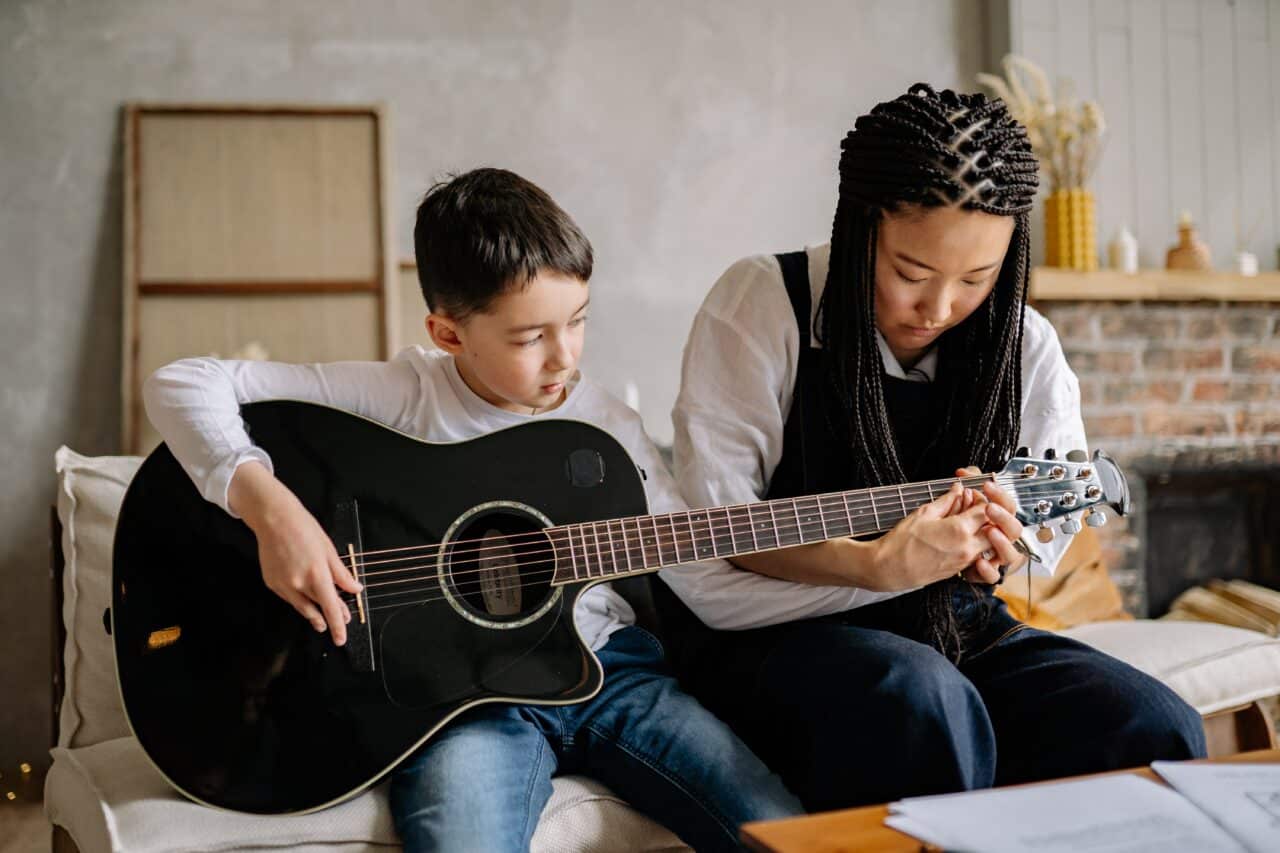Music has always been a powerful tool for learning. After all, children first learn their ABCs by singing them.
If your child has hearing loss, especially if it’s severe, you might assume that learning through music isn’t possible for them. On the contrary, children who use hearing aids and cochlear implants can use music to help improve their speech and language skills.
Pediatric Hearing Loss Can Make Communication Harder for Children

One of the most significant impacts of pediatric hearing loss is that it can cause delays in skills like communication, as well as speech and language development. Not only can this make academics harder, but it also can be difficult for children with hearing loss to communicate with their peers, leading to feelings of isolation.
While treating hearing loss with pediatric hearing aids or other assistive listening devices can help your child improve their language development, the addition of tools like music lessons can make an impact as well.
How Music Helps Children With Hearing Loss
Research shows that music helps children with hearing loss better understand language and sound. A study published in 2014 looked at the effects of music on learning by comparing two groups of profoundly deaf children. One group had weekly music lessons for several years. The other group did not. The results showed that deaf children who participated in music lessons exhibited better auditory perception and cognition and were better able to discern sounds.
Musical Activities To Help Your Child’s Language Skills
Speech therapists or music therapists can utilize music as a way of helping your child meet their speech and language goals. Additionally, there are multiple things you can do at home to help as well, such as:
- Make music part of the routine: Whether it’s getting ready for school in the morning or cleaning up after dinner, having a particular song that you sing or listen to during these times can make an activity more fun and your child start to connect lyrics with actions.
- Make a playlist. Having a regular list of songs that you can stream throughout the day that align with your child’s interests and language goals can be very beneficial.
- Practice with pots and pans. Many objects around the house can make for great musical instruments. Let your child use pots and pans to experiment with rhythm.
- Sign them up for music lessons. When they are ready, you can sign them up for music lessons at school or somewhere like Rockory Music School.
For more information or to schedule an appointment for your child with one of our pediatric specialists, call Evergreen Speech and Hearing Clinic today.